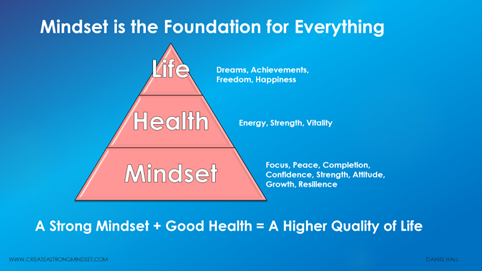Some Techniques on Managing Different Emotions
Wouldn’t you love to have better control over your emotions?
Who wouldn’t?
When I caught myself feeling stressed and irritated about not getting things done, I felt disappointed with myself. This led to me often questioning myself and my beliefs. If I got angry about something, I would later feel shame about my reaction and wonder how others could so easily control their emotions.
“It’s not what happens to you, but how you react to it that matters.” Greek philosopher Epictetus
As I learned more about human behavior, it was easier for me to recognize that most people have doubts, fears, and insecurities. What intrigued me were those people who had those negative thoughts and feelings but had learned how to manage them. I saw that those people accomplished more and led more fulfilling lives.
If I wanted to create a higher quality of life, I knew that I would have to learn how to better manage my emotions.
Do not be ashamed of your emotions.
I used to be irritated with myself for some of my emotions, so I would push them away. I looked at having them as a sign of weakness that I needed to overcome.
As Harvard Psychologist Susan David says, “emotions just are.” She says that we should use emotions as data to help us better understand ourselves.
Instead of pushing them away, I learned to look at what they were telling me about my internal programming. This led to me better understanding the events in my childhood and who I was, and I was then better able to overcome my limiting beliefs and behaviors.
I wrote about how you can do this in this article, I Overcame Procrastination by Learning to Understand and Manage My Emotions.
In this article, I want to share the techniques I picked up over the years on how to manage emotions at the time we notice them.
Simple tips I learned that have made a significant impact on improving my emotions.
I came across a lot of different advice on the internet over the years, and here are some of the best ones that have helped me.
Here are a few techniques that I use for when I realize I am caught up in sudden minor emotions.
I saw a video of some tourists shaking and breaking some cherry trees in Japan, and I felt a surge of irritation and anger when I saw it.
I simply asked myself, “what is my next thought?” and then I tried to bring that next thought out. This was effective because my mind suddenly went blank as I tried to see the future and what my next thought would be. The irritation and anger were gone.
In other situations, I ask myself a question that makes me think of something completely irrelevant to the situation that brought up the emotion. I might ask my brain to solve a simple, but not too easy, math problem. Other times, I might ask myself to guess how many rooms are in a tower apartment near me.
I find that these techniques work because they get me to use the logical area of my brain, which helps me bypass the hijacking caused by my primitive brain.
Once I have broken free of the negative feelings holding me back, I quickly act to do something productive as I know it will reduce the chance of me remembering the thing that triggered my negative emotions.
Here is a technique that is useful for rumination and for situations that bring out strong emotions.
I pretend that I am giving advice to my “best friend” who has come to me with the same situation.
I learned this technique from a video on Instagram. I don’t remember all the details clearly, but the young man in the video explained that he was very angry all the time. He was often getting into fights, and he was always getting angry and breaking things. I think he said it was very rare for a week to go by without him breaking something in anger.
He learned of the technique and started to pretend that he had a friend with the same problem and started giving advice to that friend.
He said that after three months of practicing the technique, he had never broken anything in a fit of anger again.
I tried this.
At first, it was just okay.
The advice I gave to my friend was good, but it didn’t seem to resonate with me. But as I practiced this more, I started to ask more questions. These questions started to help me better understand the situation and what was happening inside, and this led to better advice.
I feel that this works because it forces you to talk through things but from an outside point of view, and the advice you are giving to your “friend” is advice that you would listen to. When we get emotional, it’s easy to ignore good advice, so I feel that this works around that ‘stubbornness’ and allows for reason to sink in.
One more good technique to manage emotions is to write it all out.
When I find myself irritated with myself and not getting my work done, I will sometimes sit and start typing out what I am feeling and start to question those feelings.
Getting them all out on paper seems to clear them from my head. I do not keep going on and on about them, and this allows me to get to work on my things.
The final technique I use is to try and picture the emotion and where it originates within my body.
With this technique, I close my eyes and look inside myself and notice where I feel the emotion. Often it is in one area of my head. Some other times, it is in my shoulder or in my chest. I notice what color it is and how big.
I then try to visualize changing the color and the size of the emotion. I sometimes try to move it to a different location.
It often works quickly and then I consciously urge my muscles to relax while I take a few deep breaths. Once I feel that its power has diminished, I try to do or think of something else.
Summary
Remember not to get angry at yourself for your emotions. We all have emotions, and they are data that can teach you to understand yourself more deeply.
Learning to manage your emotions can help you to reduce worry and build a better quality of life.
I still have my triggers, things tied to my childhood that cause me to feel strong emotions, but having learned and practiced these has really helped me to be in much better control of how I react.
Practice consistently and you will find them helping you when difficult situations arise.
If you have your own techniques for managing emotions, I hope that you will share them in the comments below.
If you liked this story, I hope that you will share it with others and please sign-up to get articles like this one sent to you by mail.



